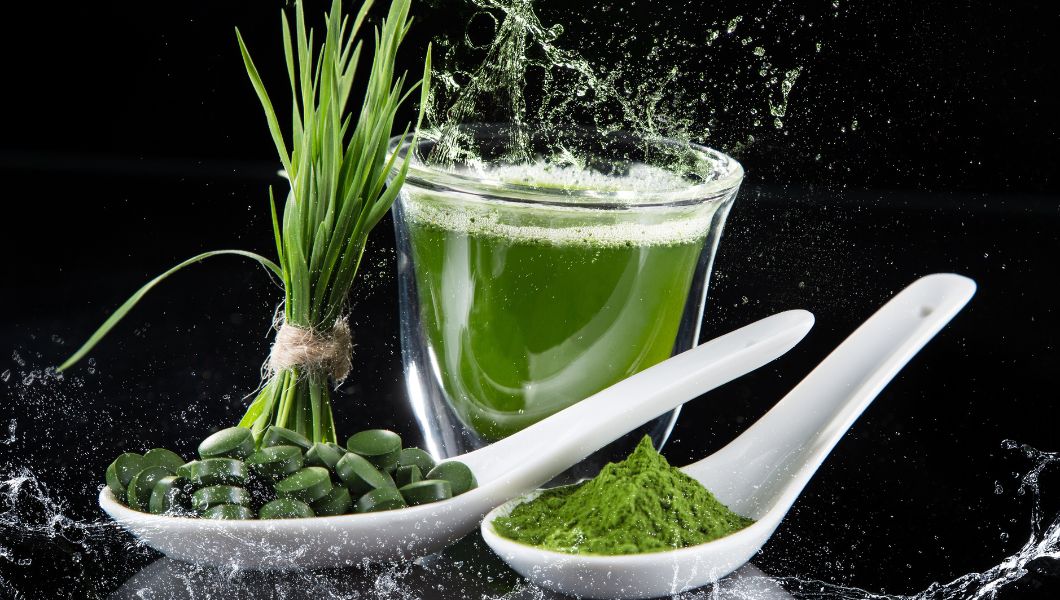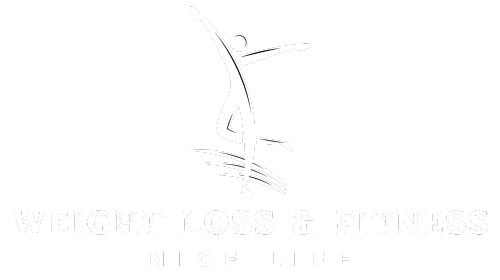Detox tea for belly fat, also known as cleansing tea or herbal detox tea, refers to a type of beverage made from a combination of herbs, spices, and other natural ingredients that are believed to have detoxifying properties.
These teas are often marketed as a means to cleanse the body of toxins and promote various health benefits.
Excess belly fat is a widespread health concern, with many individuals expressing dissatisfaction with their abdominal appearance.
It’s important to note that belly fat comes in two forms: subcutaneous fat, which is located just beneath the skin, and visceral fat, which surrounds internal organs.
Visceral fat, in particular, is associated with an increased risk of various health conditions, including heart disease, diabetes, and certain cancers.
Detox tea manufacturers often claim that their products can aid in reducing belly fat, either through fat burning, appetite suppression, or detoxification.
These claims are typically based on the supposed benefits of the herbal ingredients contained in the tea.
I. Understanding Belly Fat

A. Types of Belly Fat (Visceral vs. Subcutaneous)
– Belly fat, also known as abdominal or central adiposity, can be categorized into two main types: visceral fat and subcutaneous fat.
- Visceral Fat: This type of fat is located deep within the abdominal cavity, surrounding vital organs such as the liver, pancreas, and intestines. Visceral fat is metabolically active and is considered more harmful than subcutaneous fat. It is linked to increased inflammation and various health issues.
- Subcutaneous Fat: Subcutaneous fat is found just beneath the skin, covering the abdominal area. While it is still a concern for cosmetic reasons, it is generally less harmful from a health perspective compared to visceral fat.
B. Health Risks Associated with Excess Belly Fat
– Excess belly fat, particularly visceral fat, is associated with a range of health risks and medical conditions, including:
- Cardiovascular Disease: Visceral fat increases the risk of heart disease by contributing to high blood pressure, high cholesterol, and atherosclerosis.
- Type 2 Diabetes: Belly fat can impair insulin sensitivity and lead to the development of diabetes.
- Metabolic Syndrome: Accumulation of belly fat is a key component of metabolic syndrome, which includes a cluster of conditions like obesity, high blood pressure, and abnormal lipid profiles.
- Certain Cancers: Some studies suggest a link between excess belly fat and an increased risk of certain cancers, such as colorectal and breast cancer.
- Liver Disease: Visceral fat can contribute to non-alcoholic fatty liver disease (NAFLD).
C. Factors Contributing to Belly Fat Accumulation
– Several factors contribute to the accumulation of belly fat, and they can vary from person to person. These factors include:
- Dietary Habits: Consuming excess calories, especially from processed foods, sugary beverages, and a high-fat diet, can lead to fat accumulation in the abdominal area.
- Physical Inactivity: A sedentary lifestyle and lack of regular exercise can promote belly fat gain.
- Genetics: Genetics play a role in how fat is distributed in the body, including the abdomen.
- Hormonal Changes: Hormonal fluctuations, such as those occurring during menopause, can lead to increased belly fat in women.
- Stress: Chronic stress can trigger the release of cortisol, a hormone associated with abdominal fat storage.
- Lack of Sleep: Poor sleep patterns and insufficient rest can disrupt hormones involved in appetite regulation and fat storage.
II. Detox Tea for Belly Fat Basics

A. Definition and Ingredients
– Definition: Detox tea is a herbal beverage crafted from a combination of natural ingredients, including herbs, spices, fruits, and other botanicals. These ingredients are chosen for their perceived detoxifying and health-enhancing properties.
– Ingredients: Detox teas typically contain a variety of ingredients, such as green tea, black tea, dandelion, ginger, mint, lemongrass, and various herbs. Each ingredient is believed to contribute to the tea’s detoxification effects, although scientific evidence supporting these claims can vary.
B. Historical Use and Cultural Significance
– Historical Use: The consumption of herbal teas for their potential health benefits has a long history in various cultures. Herbal remedies have been used for centuries in traditional medicine systems, including Ayurveda in India and Traditional Chinese Medicine (TCM).
– Cultural Significance: Detox teas have cultural significance in ceremonies, rituals, and traditional healing practices. They are often associated with promoting well-being and cleansing the body.
C. Common Detox Tea Varieties
– Herbal Detox Teas: These teas typically contain a blend of herbs and botanicals known for their purported detoxifying properties. Examples include dandelion root tea, nettle tea, and senna tea.
– Green Tea Detox Teas: Green tea is commonly included in detox teas due to its high levels of antioxidants, particularly catechins like EGCG (Epigallocatechin gallate), which are believed to support metabolism and detoxification.
– Fruit-Infused Detox Teas: These teas incorporate fruits like berries, lemon, or grapefruit, which are thought to add flavor and potential detox benefits.
D. Mechanisms of Action
– Diuretic Effects: Many detox teas contain diuretic ingredients like dandelion or nettle, which may increase urine output and promote the excretion of water and electrolytes from the body. This may result in short-term weight reduction and diminished bloating.
– Antioxidant Properties: Ingredients like green tea and herbs provide antioxidants that may help combat oxidative stress and reduce inflammation.
– Metabolism and Thermogenesis: Some detox tea for belly fat ingredients, like caffeine from green tea, can boost metabolism and increase thermogenesis, potentially contributing to calorie burning.
– Appetite Suppression: Certain ingredients may have appetite-suppressing effects, helping individuals control their calorie intake.
III. Claims and Promises
A. Marketing Claims about Detox Tea and Belly Fat
– Detox tea for belly fat products are often marketed with a wide range of claims related to their ability to address belly fat. Some common marketing claims include:
- Belly Fat Reduction: Detox teas are often advertised as a quick and effective way to reduce belly fat, promising a flatter and more toned abdominal area.
- Detoxification: Manufacturers claim that these teas can detoxify the body by eliminating harmful toxins and impurities, which, in turn, is said to lead to reduced belly fat.
- Metabolism Boost: Many detox teas boast metabolism-boosting effects, suggesting that they can increase calorie burning and fat oxidation.
- Appetite Suppression: Some detox teas claim to suppress appetite, potentially leading to reduced calorie intake and weight loss.
B. Scientific Support (or Lack Thereof)
– The scientific support for the claims made by detox tea manufacturers is often limited and mixed:
- Belly Fat Reduction: While some ingredients in detox teas may have mild diuretic or thermogenic effects, the overall impact on belly fat reduction is typically modest and temporary.
- Detoxification: The concept of detoxification through tea consumption is debated in the scientific community, as the body’s natural detoxification processes are highly efficient, primarily involving the liver and kidneys.
- Metabolism Boost: Certain ingredients like caffeine in green tea can temporarily boost metabolism, but the long-term impact on weight loss is limited.
- Appetite Suppression: Some teas may contain ingredients that have mild appetite-suppressing effects, but these effects vary among individuals.
C. Potential Benefits and Risks
– Potential Benefits:
- Antioxidant Properties: Detox teas often contain antioxidants, which can help combat oxidative stress and reduce inflammation in the body.
- Hydration: Drinking herbal teas can contribute to overall hydration, which is essential for health.
- Mild Weight Loss: Some individuals may experience temporary weight loss or reduced bloating due to the diuretic effects of detox teas.
– Potential Risks:
- Dehydration: Excessive consumption of detox teas with diuretic properties can lead to dehydration and electrolyte imbalances.
- Laxative Effects: Teas containing senna or other strong laxatives can cause digestive discomfort and dependency on laxatives.
- Caffeine Content: Detox teas with high caffeine content can lead to insomnia, jitteriness, and increased heart rate.
- Lack of Regulation: The supplement and herbal tea industry is not well-regulated, leading to variations in product quality and safety.
IV. Role of Detox Tea in Weight Management
A. Theoretical Connection between Detox Tea and Belly Fat Reduction
– Theoretical Mechanisms: Detox tea is often proposed to contribute to belly fat reduction through several mechanisms, including:
- Diuretic Effects: Some ingredients can lead to increased urine output, temporarily reducing water weight and bloating in the abdominal area.
- Metabolism Boost: Ingredients like caffeine may temporarily boost metabolism, potentially contributing to calorie burning.
- Appetite Suppression: Certain teas may contain appetite-suppressing compounds that could lead to reduced calorie intake.
B. Realistic Expectations
- Temporary Effects: Detox tea is unlikely to provide long-term or significant reductions in belly fat. Any initial weight loss is typically due to water loss and reduced bloating rather than fat loss.
- Healthy Lifestyle Required: Achieving and maintaining a healthy weight, including reducing belly fat, requires a combination of factors such as a balanced diet, regular exercise, and lifestyle changes.
- No Quick Fix: Detox tea should not be viewed as a quick fix or a replacement for a healthy lifestyle. It may play a minor supporting role, but its effects are limited.
C. Effectiveness Compared to Other Weight Loss Methods
– Comparative Effectiveness: Detox tea’s effectiveness in weight management is often less pronounced compared to other proven methods, such as:
- Dietary Modifications: A balanced and calorie-controlled diet is a cornerstone of sustainable weight loss.
- Regular Physical Activity: Exercise helps burn calories, build muscle, and improve overall metabolism.
- Behavioral Changes: Adopting healthy habits, such as mindful eating and stress management, is essential for long-term success.
- Medical Interventions: In cases of severe obesity or health conditions, medical interventions like weight loss surgery may be necessary.
– Individual Variability: The effectiveness of detox tea for belly fat varies among individuals. Some may experience mild benefits, while others may see no noticeable results.
V. Ingredients in Detox Tea
A. Key Ingredients and Their Purported Effects on Metabolism and Fat Loss
– Detox teas often contain a variety of ingredients, each with its own claimed effects on metabolism and fat loss. Common key ingredients include:
- Green Tea: Contains catechins, particularly EGCG, which are believed to boost metabolism and promote fat oxidation.
- Dandelion: Known for its diuretic properties, dandelion is thought to reduce water retention and bloating.
- Ginger: May enhance thermogenesis and calorie burning.
- Senna: A strong laxative that can lead to temporary weight loss through increased bowel movements.
- Peppermint: Often included for its potential appetite-suppressing effects.
B. Scientific Evidence for the Efficacy of These Ingredients
– While some ingredients in detox teas have shown promise in laboratory studies, the real-world impact on metabolism and fat loss can be limited:
- Green Tea: Research suggests that the catechins in green tea may have a modest effect on metabolism and fat oxidation, but results are inconsistent, and the effects are usually small.
- Dandelion: The diuretic effect of dandelion can lead to temporary weight loss due to water reduction, but it doesn’t target fat loss.
- Ginger: While ginger may have a minor thermogenic effect, it’s unlikely to lead to significant fat loss on its own.
- Senna: Senna’s laxative effect can cause short-term weight loss through purging the intestines, but it’s not a sustainable or healthy approach.
- Peppermint: Peppermint’s appetite-suppressing effects are generally mild and vary among individuals.
C. Possible Side Effects or Risks Associated with Detox Tea for Belly Fat Ingredients
– Detox teas can have potential side effects and risks, including:
- Dehydration: Diuretic ingredients can lead to excessive fluid loss, potentially causing dehydration, electrolyte imbalances, and weakness.
- Laxative Dependency: Teas containing strong laxatives like senna can lead to a reliance on laxatives for bowel movements, which is not healthy.
- Caffeine-Related Issues: High caffeine content in some detox teas can lead to insomnia, anxiety, and heart palpitations.
- Digestive Discomfort: Some individuals may experience gastrointestinal discomfort, cramping, or diarrhea when consuming certain detox tea ingredients.
- Allergic Reactions: Allergic reactions can occur in response to specific herbal ingredients, posing risks to those with allergies.
VI. Critical Evaluation
A. Consideration of Scientific Studies and Reviews
– When evaluating the claims of detox tea for belly fat reduction, it’s important to look at scientific studies and reviews. Key points to consider include:
- Study Quality: Assess the quality and methodology of studies. Randomized controlled trials (RCTs) are generally considered the gold standard in research.
- Sample Size: Smaller studies may have less reliable results. Larger sample sizes provide more robust data.
- Duration: Longer-term studies are more informative when evaluating weight loss and health effects.
- Conflict of Interest: Be aware of any potential conflicts of interest in studies, such as funding from the detox tea industry.
B. Consumer Experiences and Testimonials
– Consumer experiences and testimonials can provide insights into the real-world use of detox teas, but they should be interpreted cautiously:
- Individual Variability: People’s responses to detox teas vary widely, making it challenging to generalize from personal anecdotes.
- Placebo Effect: Positive expectations can lead to perceived benefits, even if the tea itself has little or no effect.
- Confirmation Bias: People are more likely to share positive experiences, leading to a potential bias in online reviews and testimonials.
C. Discussion of Potential Placebo Effects
– The placebo effect plays a significant role in the perceived benefits of detox teas:
- Expectation: When individuals believe that a product will help them lose belly fat, they may experience improvements due to the power of expectation.
- Psychological Factors: Positive beliefs about a product can lead to reduced stress and increased motivation, which can indirectly impact weight loss.
- Subjective Improvements: People may report feeling better or experiencing reduced bloating after using detox teas, even if there is no significant physiological change.
VII. Safety and Precautions
A. Health Considerations and Contraindications
– Before incorporating detox tea for belly fat into one’s routine, it is crucial to consider individual health factors and any contraindications that may exist:
- Underlying Health Conditions: Individuals with pre-existing medical conditions, such as kidney problems, heart issues, or gastrointestinal disorders, should exercise caution, as detox teas can exacerbate these conditions.
- Medications: Detox teas may interact with medications, reducing their efficacy or causing adverse effects. Consultation with a healthcare provider is especially important for those on medication regimens.
- Pregnancy and Breastfeeding: Pregnant or breastfeeding individuals should avoid certain detox teas due to potential risks to fetal development or infants.
B. Consultation with Healthcare Professionals
– It is advisable to seek guidance from healthcare professionals, such as doctors or registered dietitians, before starting a detox tea regimen:
- Individual Assessment: Healthcare providers can assess an individual’s overall health and provide personalized recommendations regarding detox tea use.
- Medication Review: They can review medication lists to identify potential interactions or contraindications.
- Alternative Approaches: Professionals can suggest safer and more effective approaches to weight management and overall health if detox tea is not suitable.
C. Avoidance of Extreme Detoxification Practices
– Extreme detoxification practices, including prolonged detox tea cleanses or excessive consumption, should be avoided due to potential risks:
- Dehydration: Extended detox programs with diuretic effects can lead to severe dehydration and electrolyte imbalances.
- Nutrient Deficiency: Overreliance on detox teas for nutrition can result in nutrient deficiencies, leading to health problems.
- Laxative Dependency: Prolonged use of detox teas with strong laxatives can lead to a dependency on laxatives for bowel movements.
- Eating Disorders: Extreme detoxification practices can potentially trigger or exacerbate eating disorders.
VIII. Alternatives to Detox Tea
A. Healthy Diet and Nutrition
– A fundamental and effective alternative to detox tea is adopting a healthy diet and proper nutrition:
- Balanced Diet: Focus on a well-balanced diet rich in whole foods, including fruits, vegetables, lean proteins, whole grains, and healthy fats.
- Portion Control: Pay attention to portion sizes to avoid overeating, which can lead to weight gain.
- Nutrient-Rich Foods: Prioritize foods that are nutrient-dense and provide essential vitamins and minerals for overall health.
- Hydration: Stay adequately hydrated by drinking water throughout the day, which supports digestion and overall well-being.
B. Regular Physical Activity
– Incorporating regular physical activity into one’s lifestyle is a proven method for weight management and overall health:
- Cardiovascular Exercise: Engage in aerobic activities like walking, running, cycling, or swimming to burn calories and improve cardiovascular health.
- Strength Training: Include strength training exercises to build muscle, which can boost metabolism and enhance fat burning.
- Flexibility and Balance: Activities like yoga and Pilates can improve flexibility, balance, and overall well-being.
C. Other Natural Remedies and Supplements
– Some individuals may explore other natural remedies and supplements to support their weight management efforts. It’s essential to do so with caution and under professional guidance:
- Herbal Supplements: Certain herbs and botanicals, like cinnamon or fenugreek, may have mild effects on blood sugar control and appetite regulation.
- Probiotics: Probiotic supplements can promote gut health, which is linked to overall well-being and weight management.
- Fiber: Adequate fiber intake from foods or supplements can aid in appetite control and digestion.
- Mindful Eating: Practicing mindful eating techniques can help individuals develop a healthier relationship with food and reduce overeating.
IX. Conclusion
A. Recap of Key Points
– Throughout this exploration of detox tea for belly fat, several critical points have been highlighted:
- Detox teas are herbal beverages marketed for their potential detoxification and weight loss effects.
- Belly fat is a common concern, primarily due to its association with health risks.
- Claims about detox tea’s ability to reduce belly fat should be critically evaluated.
- Detox tea ingredients can vary widely and may have limited scientific support.
- Safety precautions, including consultation with healthcare professionals, are essential.
- Alternatives to detox tea, such as a healthy diet and exercise, offer more sustainable approaches to weight management.
B. Final Thoughts on the Use of Detox Tea for Addressing Belly Fat
– While detox teas may offer some temporary benefits, such as reduced bloating or water weight loss, they are not a panacea for addressing belly fat. The following key considerations should guide individuals:
- Detox tea’s impact on belly fat is typically modest and temporary.
- Sustainable, evidence-based approaches to weight management, such as a balanced diet and regular physical activity, are more effective.
- Detox tea should be used cautiously, considering individual health factors and potential side effects.
- Placebo effects and individual variability can influence perceived benefits.
- Consultation with healthcare professionals is advisable before starting any detox regimen.
C. Encouragement of Informed Decision-Making
– In conclusion, making informed decisions about the use of detox tea for belly fat management is essential for overall well-being:
- Prioritize evidence-based approaches to weight management and health.
- Understand that detox tea may have a limited role and should not replace healthy lifestyle choices.
- Seek guidance from healthcare professionals for personalized recommendations.
- Be aware of marketing claims and the potential placebo effect when assessing the effects of detox tea.
- Embrace a holistic approach to health that includes a balanced diet, physical activity, and mindful living.
In the quest for improved health and weight management, individuals are encouraged to adopt a well-rounded and sustainable approach that aligns with their unique needs and goals.
Detox teas, if used at all, should be viewed as a supplement rather than a primary strategy, and any decision to incorporate them into a health regimen should be made with careful consideration and professional guidance.













No Comments